Increase website conversions by driving targeted web traffic.
Buy CPC Traffic | Buy Display Ads | Exclusive traffic sources | Buy Push Ads | Popunder ADS | Buy Native Ads | Buy Preroll Ads

Buy CPC Traffic | Buy Display Ads | Exclusive traffic sources | Buy Push Ads | Popunder ADS | Buy Native Ads | Buy Preroll Ads
In today's competitive digital landscape, driving targeted web traffic to your website is crucial for the success of your business. But simply increasing the quantity of visitors is not enough – you need to ensure that you attract the right audience who are likely to convert into customers. To achieve this, you need to employ effective strategies that will help you reach your target audience and encourage them to take desired actions.
1. Define Your Target Audience: Before you can drive targeted web traffic, you need to clearly identify who your ideal customers are. Conduct market research and create buyer personas to understand their demographics, interests, and pain points. This will help you tailor your content and marketing campaigns to attract the right audience.
2. Optimize Your Website for Search Engines: Search engine optimization (SEO) is essential for driving organic traffic to your website. Conduct keyword research to identify the terms and phrases your target audience is using to search for products or services like yours. Incorporate these keywords naturally into your website's content, meta tags, and URLs to improve your search engine rankings and attract relevant traffic.
3. Create Compelling Content: High-quality, relevant content is key to attracting and engaging your target audience. Create blog posts, articles, videos, and other types of content that address your audience's pain points and provide valuable solutions. Use eye-catching headlines and include relevant keywords to capture the attention of your target audience and encourage them to click through to your website.
4. Leverage Social Media: Social media platforms provide a great opportunity to connect with your target audience and drive traffic to your website. Create engaging posts, share your content, and interact with your followers to build a loyal community. Use targeted advertising options offered by platforms like Facebook and Instagram to reach specific segments of your audience and drive them to your website.
5. Collaborate with Influencers: Influencer marketing can be a powerful tool for driving targeted web traffic. Identify influencers in your industry who have a large and engaged following that aligns with your target audience. Collaborate with them to create sponsored content or have them promote your products or services. This can help you gain exposure to a highly relevant audience and drive traffic to your website.
By implementing these strategies, you can drive targeted web traffic to your website and increase your chances of converting visitors into loyal customers. Remember to regularly analyze your traffic sources, engagement metrics, and conversion rates to identify what is working and make necessary adjustments to optimize your efforts.
Boosting Your Website's Traffic with Targeted Visitors
Driving targeted web traffic to your website is crucial for improving conversions and growing your online presence. By attracting visitors who are interested in your products or services, you can increase the chances of turning them into loyal customers. Here are some effective strategies you can use to boost your website's traffic with targeted visitors:
1. Utilize SEO
Search Engine Optimization (SEO) is essential for improving your website's visibility in search engine results. By optimizing your web pages with relevant keywords and meta tags, you can increase the chances of appearing in the top results when people search for products or services related to your business. Conduct keyword research to find out which search terms your target audience is using, and incorporate them naturally into your website's content.
2. Create Engaging Content
Producing high-quality, engaging content is key to attracting targeted visitors to your website. By creating informative blog posts, articles, and videos that are relevant to your target audience, you can establish yourself as an authority in your industry and encourage people to visit your website for more information. Make sure to optimize your content for search engines and promote it through social media channels to maximize its reach.
3. Leverage Social Media
Social media platforms provide excellent opportunities to connect with your target audience and drive traffic to your website. Create compelling profiles on platforms that are popular among your target audience and share valuable content regularly. Engage with your followers by responding to comments and messages, and encourage them to visit your website for more information or special offers. Use social media advertising to reach a wider audience and increase your website's visibility.
4. Collaborate with Influencers

Influencer marketing can be a powerful strategy for attracting targeted visitors to your website. Identify influencers in your industry who have a significant following among your target audience, and partner with them to promote your products or services. When influencers recommend or endorse your offerings, their followers are more likely to visit your website and make a purchase. This can significantly boost your website's traffic and increase conversions.
5. Optimize for Mobile
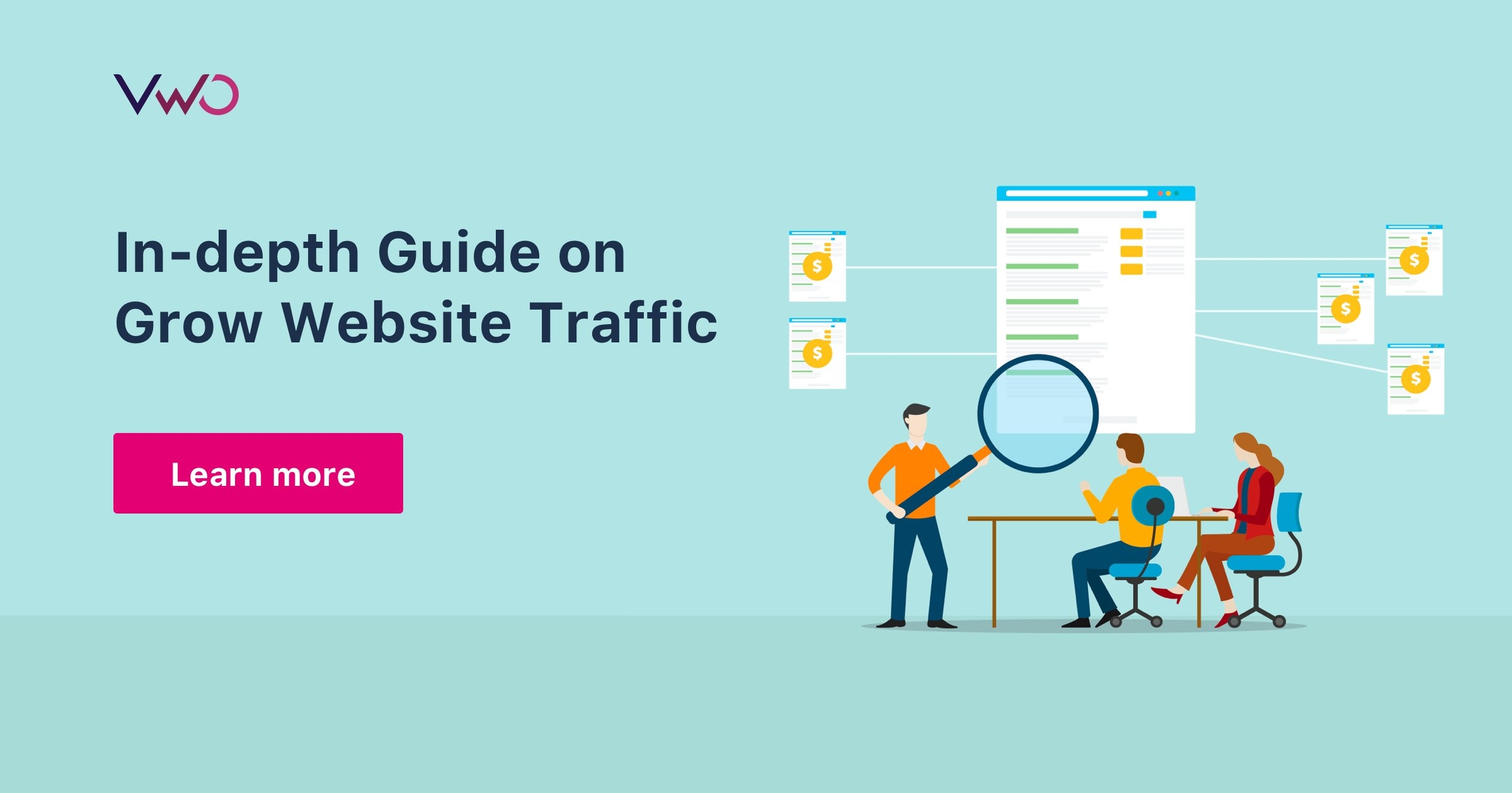
With the increasing use of smartphones and tablets, it's essential to optimize your website for mobile devices. A responsive design ensures that your website looks and functions well on different screen sizes, providing a seamless user experience for mobile visitors. Google also considers mobile-friendliness as a ranking factor, so optimizing your website for mobile can improve its visibility in search results and attract more targeted traffic.
Incorporating these strategies into your digital marketing efforts can help you drive targeted web traffic to your website and improve conversions. Remember to monitor your website's analytics regularly to track the effectiveness of your strategies and make adjustments as needed. By consistently attracting targeted visitors to your website, you can increase your chances of converting them into loyal customers.
Increased conversions
Improved online presence
Higher chance of attracting loyal customers
Requires ongoing effort and monitoring
Results may take time to see
Competition for targeted traffic
Understanding the Importance of Targeted Web Traffic
Driving traffic to your website is important, but it's even more crucial to attract targeted traffic. Targeted web traffic refers to visitors who are genuinely interested in the products, services, or information you offer on your website. It's not about getting random visitors, but about attracting the right audience who are more likely to convert into customers or take the desired action.
When you focus on targeted web traffic, you can increase your chances of achieving better conversions and meeting your goals. Here are a few reasons why targeted web traffic is essential:
Relevant Audience: By attracting targeted traffic to your website, you ensure that the people visiting your site are actually interested in what you have to offer. This means they are more likely to engage with your content, spend more time on your site, and take the desired actions.
Higher Conversion Rates: When you have a relevant audience, your conversion rates naturally increase. By focusing on driving targeted traffic, you improve the chances of turning visitors into customers, subscribers, or leads. This can lead to increased sales and business growth.
Cost Efficiency: Targeted web traffic is more cost-effective compared to random traffic. When you attract visitors who are already interested in your products or services, you are more likely to see a return on your investment in terms of sales or conversions. This makes targeted traffic sources like native traffic sources an excellent choice for businesses looking for cost-efficient ways to drive traffic.
Improved SEO: When you focus on attracting the right audience, it can positively impact your search engine optimization (SEO) efforts. Targeted traffic helps to increase your website's visibility, improve your ranking in search engine result pages, and attract even more organic traffic in the long run.
Overall, targeted web traffic is crucial for the success of your website and business. It not only brings in visitors who are genuinely interested in your offerings but also improves your chances of achieving your desired goals. By investing in targeted traffic sources like native traffic sources, you can drive more relevant traffic to your website and increase your conversions and sales.
Identifying Your Target Audience
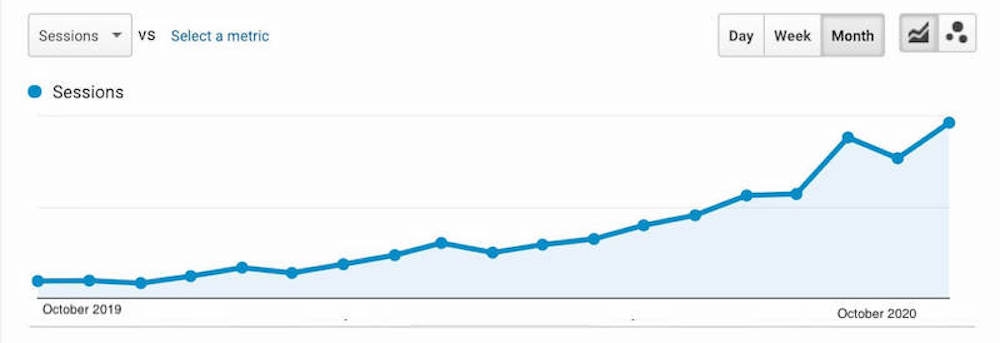
Before you can effectively drive targeted web traffic to your website, it's crucial to identify your target audience. Understanding who your ideal customers are will help you tailor your marketing efforts and content to attract the right people.
1. Define your product or service: Start by clearly defining what you offer. What problem does it solve? What benefits does it provide? Identify the unique selling proposition (USP) of your product or service.
2. Research your competitors: Take a close look at your competition. Who are their customers? What are they doing to attract them? Analyze their marketing strategies and identify any gaps or opportunities that you can leverage.
3. Create buyer personas: Develop fictional profiles that represent your ideal customers. Consider their demographics, interests, job titles, pain points, and goals. This will help you understand their motivations and needs, enabling you to create targeted content that resonates with them.
4. Conduct market research: Use surveys, interviews, and social media listening to gather insights about your target audience. Find out where they spend their time online, what websites they visit, and what topics interest them. This information will help you determine where to focus your marketing efforts.
5. Use analytics: Monitor your website's analytics to gain valuable data about your visitors. Look for patterns in demographics, behavior, and preferences. This will help you refine your target audience and make data-driven decisions about your marketing strategy.
6. Continuously refine your target audience: Your target audience may evolve over time as your business grows and changes. Stay proactive by regularly reviewing and updating your buyer personas and market research to ensure you are always targeting the most relevant audience.
By identifying your target audience, you can optimize your website and marketing efforts to attract the right visitors who are more likely to convert into customers. Remember to regularly assess your target audience to adapt to their changing preferences and needs.
Creating Relevant and Engaging Content
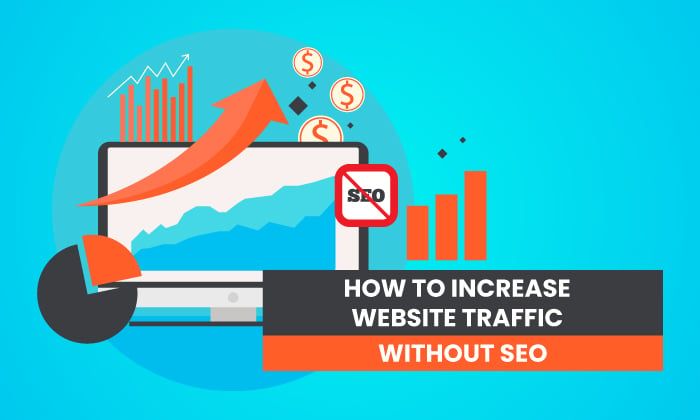
To drive targeted web traffic to your website and improve conversions, it is essential to create relevant and engaging content. High-quality content not only helps attract the right audience but also keeps visitors on your website longer, increasing the chances of conversion.
Identify Your Target Audience:
Before creating content, it's crucial to identify your target audience. Understanding their needs, preferences, and pain points will help you develop content that resonates with them. Conduct market research, analyze demographics, and gain insights into your audience's online behavior to tailor your content accordingly.
Provide Valuable Information:
When creating content, focus on providing valuable information that your target audience will find useful. This can include tips, guides, tutorials, industry news, or expert insights. By positioning yourself as a reliable source of information, you can build trust with your audience and establish yourself as a thought leader in your niche.
Make It Engaging:
Engaging content keeps users interested and encourages them to explore more. Use catchy headlines, subheadings, and bullet points to make your content scannable. Incorporate multimedia elements like images or videos to break up the text and increase visual appeal. Encourage interaction by including call-to-action buttons or asking questions that prompt readers to leave comments or share their opinions.
Optimize for Search Engines:
Search engine optimization (SEO) plays a vital role in driving organic traffic to your website. Research relevant keywords and incorporate them naturally throughout your content. Use descriptive and keyword-rich meta titles and descriptions to attract clicks from search engine result pages. Properly formatting your content with headings and subheadings helps search engines understand the structure and relevance of your content.
Stay Consistent:
Consistency is key when it comes to creating content. Develop an editorial calendar to plan and create content regularly. Whether it's weekly blog posts, monthly newsletters, or daily social media updates, staying consistent will keep your audience engaged and coming back for more.
Conclusion
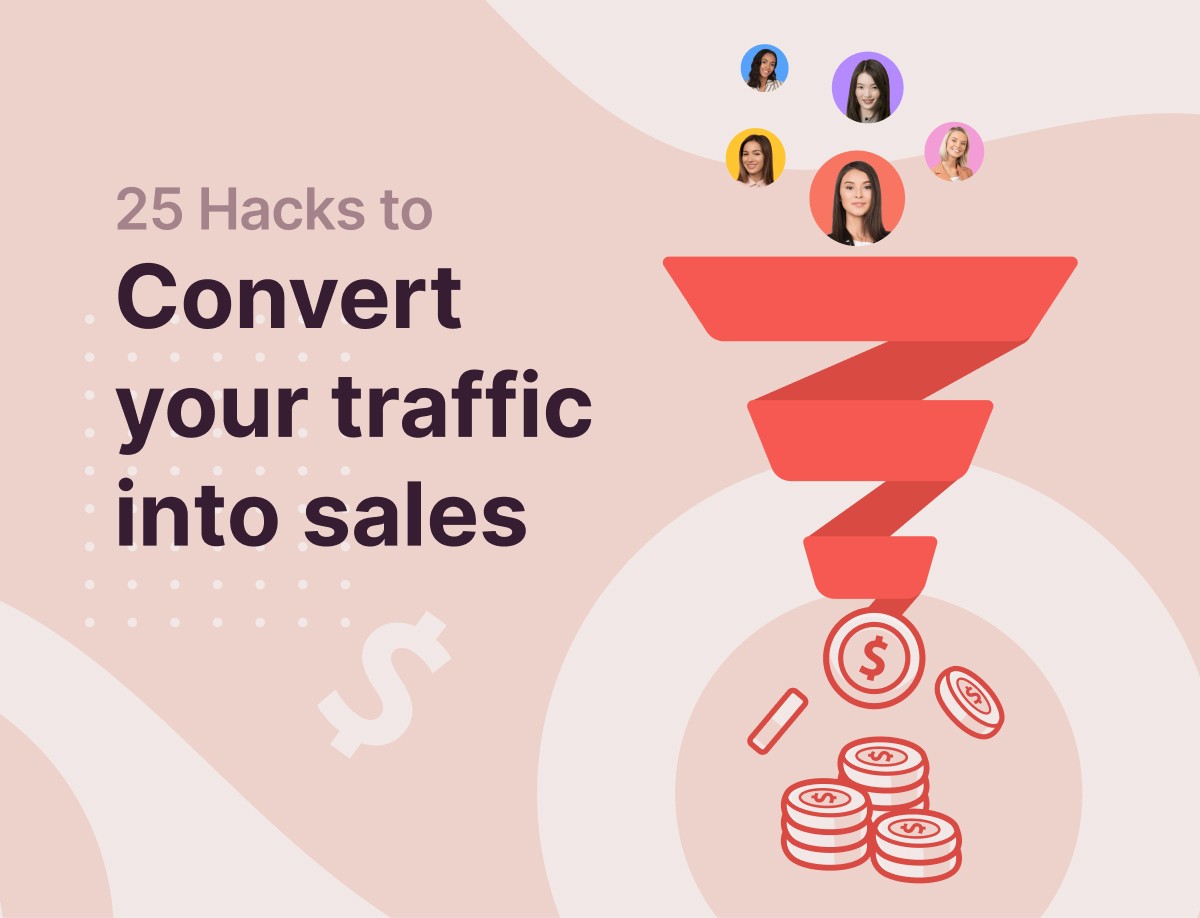
In conclusion, creating relevant and engaging content is vital to drive targeted web traffic and improve conversions. By understanding your target audience, providing valuable information, making your content engaging, optimizing it for search engines, and staying consistent, you can attract the right audience to your website and increase your chances of conversion.
Optimizing Your Website for Search Engines
When it comes to driving targeted web traffic to your website, one of the most important factors is optimizing your website for search engines. This means making sure that your website is easily found and ranked highly by search engines like Google.
To optimize your website for search engines, there are a few key steps you need to take:
1. Keyword Research
The first step in optimizing your website is to conduct keyword research. This involves finding the keywords that are most relevant to your website and that your target audience is likely to search for. You can use tools like Google Keyword Planner or SEMrush to help you identify these keywords.
2. On-Page Optimization
Once you have identified your target keywords, you need to optimize your website's on-page elements. This includes optimizing your page titles, meta descriptions, headers, and content to include your target keywords in a natural and organic way.
Additionally, you should make sure that your website's URL structure is clean and descriptive, and that your website loads quickly and is mobile-friendly. All of these factors contribute to your website's search engine ranking.
3. Link Building
Another important aspect of optimizing your website for search engines is building high-quality backlinks. Backlinks are links from other websites that point to your website, and they are an important signal to search engines of your website's credibility and authority.
You can build backlinks by reaching out to relevant websites in your industry and asking for a link, or by creating high-quality content that other websites will want to link to. Guest blogging and participating in industry forums and communities are also effective ways to build backlinks.
4. Regular Monitoring and Adjustment
Finally, it's important to regularly monitor your website's performance in search engine rankings and make any necessary adjustments to your optimization strategy. Search engines are constantly updating their algorithms, and what works today may not work tomorrow.
By regularly monitoring your website's performance and staying up to date with the latest SEO trends and best practices, you can ensure that your website remains optimized for search engines and continues to drive targeted web traffic to your site.
Keyword Research
- Improved search engine visibility
On-Page Optimization
- Higher search engine rankings
Link Building
- Increased website credibility
Regular Monitoring and Adjustment
- Continued website optimization
Conducting Keyword Research
Keyword research is a critical step in driving targeted web traffic to your website. By understanding the terms and phrases that users are searching for, you can optimize your website content to align with their search intent.
Here are some steps to conduct effective keyword research:
Start with brainstorming: Begin by brainstorming a list of relevant topics and ideas related to your website. Think about your target audience and what they might be searching for when looking for information or solutions that your website offers.
Use keyword research tools: Utilize tools such as Google Keyword Planner, SEMrush, or Moz's Keyword Explorer to identify popular keywords related to your topic. These tools can provide insights into search volume, competition, and other metrics.
Analyze competitor keywords: Study your competitors' websites and identify the keywords they are ranking for. This can help you identify gaps in your own keyword strategy and find opportunities to target keywords that are less competitive.
Consider long-tail keywords: Long-tail keywords are longer and more specific phrases that typically have lower search volume but higher conversion rates. These keywords can help you attract more targeted traffic to your website. Look for long-tail keywords that are relevant to your niche.
Group keywords into themes: Once you have a list of keywords, group them into themes or categories. This will help you organize your keyword strategy and create focused content around each theme.
Optimize your content: Finally, use the keywords you have identified to optimize your website content. Incorporate them naturally into your page titles, headings, meta descriptions, and throughout your content. However, avoid keyword stuffing and make sure your content remains high-quality and useful for users.
Remember that keyword research is an ongoing process. Regularly monitor your website's performance and adjust your keyword strategy as needed to ensure you are driving the right traffic to your site and improving your conversions.
On-Page Optimization Strategies
On-page optimization plays a crucial role in driving targeted web traffic to your website. By optimizing your website's content and structure, you can improve its visibility to search engines and increase your chances of ranking higher in search engine results pages (SERPs). Here are some effective on-page optimization strategies to help you drive more targeted traffic to your website:
Keyword Research: Conduct thorough keyword research to identify the terms and phrases your target audience is likely to use in their search queries. Use these keywords strategically throughout your website's content to attract relevant traffic.
Meta Tags: Optimize your website's meta tags, including the title tag and meta description. These tags provide a brief summary of your webpage's content and can significantly impact your search engine visibility.
Content Optimization: Ensure that your website's content is well-structured, engaging, and informative. Use your targeted keywords naturally within your content to improve its relevance to search engines and users.
Heading Tags: Use heading tags (H1, H2, H3, etc.) to structure your content and highlight important sections. Incorporate relevant keywords into your headings to improve your website's relevance and search engine visibility.
URL Structure: Optimize your website's URL structure by creating descriptive and keyword-rich URLs. This makes it easier for search engine crawlers to understand and index your webpages effectively.
Internal Linking: Include internal links within your website's content to guide visitors to other relevant pages on your site. This not only improves user experience but also helps search engines discover and index your webpages more efficiently.
Image Optimization: Optimize your website's images by providing descriptive filenames and alt tags. This allows search engines to understand the content of your images and improves the overall relevancy of your webpages.
Mobile Optimization: Ensure that your website is fully optimized for mobile devices. With the increasing number of mobile users, mobile optimization is essential for better search engine rankings and user experience.
By implementing these on-page optimization strategies, you can improve your website's visibility, attract targeted traffic, and ultimately achieve better conversions. Remember to regularly analyze and update your on-page optimization efforts to stay up-to-date with the latest SEO trends and best practices.
Building High-Quality Backlinks
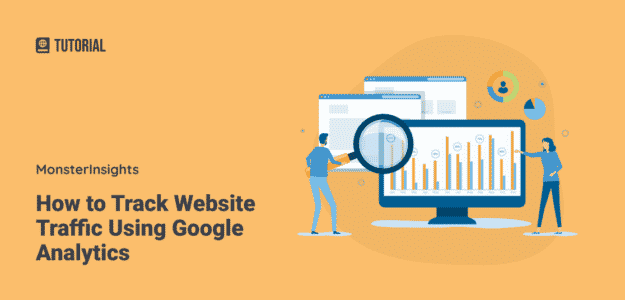
Building high-quality backlinks is essential for driving targeted web traffic to your website and improving your conversions. Backlinks, also known as inbound links, are links from other websites that point to your website. When these links come from authoritative and relevant sources, they can greatly enhance your website's credibility and visibility in search engine rankings.
1. Guest blogging

One effective way to build high-quality backlinks is through guest blogging. Identify reputable blogs in your industry and offer to write informative and engaging articles for them. In your articles, include a link back to your website in the author bio or within the content itself. Guest blogging not only earns you backlinks but also helps you establish yourself as an industry expert.
2. Social media promotion
Social media platforms offer great opportunities for building backlinks. By sharing your website's content on social media, you can attract the attention of influencers and other industry experts who might link to your content. Additionally, actively participating in relevant social media communities and discussions can help you establish connections and gain backlinks from other users.
3. Influencer outreach
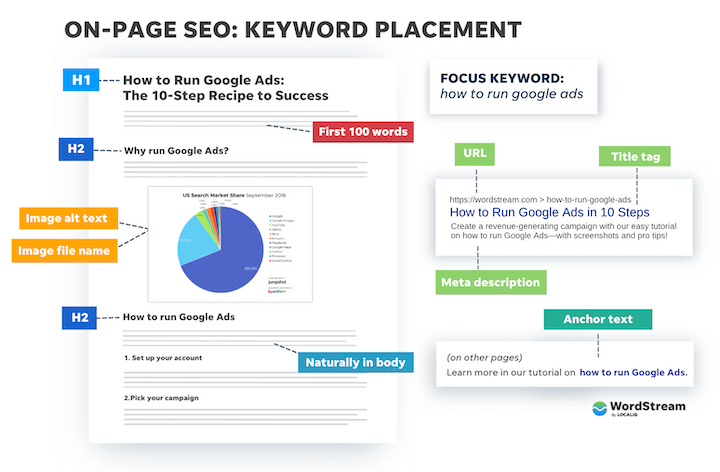
Reach out to influential individuals within your industry and try to collaborate with them. By mentioning them in your content or asking them to contribute to your blog, you can increase the likelihood of them linking back to your website. Influencer backlinks are highly valuable as they come from authoritative sources and can significantly boost your website's visibility.
4. Content creation
Producing high-quality, informative, and shareable content is a surefire way to attract backlinks. Create valuable resources, such as blog posts, infographics, and e-books, that others in your industry would find useful. When other websites or blogs find your content valuable, they are more likely to link to it, increasing your backlink profile and driving more targeted traffic to your website.
In conclusion, building high-quality backlinks is crucial for driving targeted web traffic to your website. By utilizing strategies such as guest blogging, social media promotion, influencer outreach, and content creation, you can enhance your website's credibility, visibility, and ultimately, improve your conversion rates.
What are some effective strategies to drive targeted web traffic to my website?
There are several strategies you can use to drive targeted web traffic to your website. One effective strategy is search engine optimization (SEO), which involves optimizing your website for relevant keywords to improve its visibility in search engine results. Another strategy is content marketing, which involves creating and sharing valuable content to attract and engage your target audience. Additionally, you can use social media marketing, email marketing, and paid advertising to drive traffic to your website.
How can I improve my website's search engine optimization?
To improve your website's search engine optimization, you can start by conducting keyword research to identify the relevant keywords that your target audience is searching for. Once you have identified these keywords, you can optimize your website's content by incorporating them naturally into your titles, headings, and body text. You should also focus on creating high-quality, valuable content that is relevant to your target audience's interests and needs. Additionally, you can work on building high-quality backlinks from reputable websites to improve your website's authority and visibility in search engine results.
What are some ways to attract and engage my target audience through content marketing?
There are several ways to attract and engage your target audience through content marketing. One effective way is to create informative and educational blog posts that provide valuable information and insights related to your industry or niche. You can also create videos, infographics, and other types of visual content to make your content more engaging and shareable. Additionally, you can participate in relevant online communities and forums to share your knowledge and expertise and connect with your target audience.
Is it important to use social media marketing to drive targeted web traffic?
Yes, social media marketing can be an effective way to drive targeted web traffic to your website. By creating and sharing valuable content on social media platforms, you can attract and engage your target audience and drive them to visit your website. It's important to choose the right social media platforms that are popular among your target audience and tailor your content to suit each platform's unique requirements and user behaviors. Additionally, you can use social media advertising to further amplify your reach and drive targeted traffic to your website.
How long does it take to see results from driving targeted web traffic?
The time it takes to see results from driving targeted web traffic to your website can vary depending on several factors, such as the effectiveness of your strategies, the competitiveness of your industry, and the quality of your website and content. In some cases, you may start seeing an increase in traffic and conversions within a few weeks or months. However, building a sustainable flow of targeted web traffic requires ongoing effort and optimization, so it's important to be patient and persistent in your marketing efforts.
What are some effective strategies for driving targeted web traffic?
There are several effective strategies for driving targeted web traffic. One approach is to optimize your website's content and meta tags for relevant keywords to improve your search engine rankings. Another strategy is to use social media platforms to engage with your target audience and promote your website. You can also consider running targeted ads on platforms like Google AdWords or Facebook Ads.
How can I optimize my website for better search engine rankings?
There are several ways you can optimize your website for better search engine rankings. Firstly, you should conduct keyword research to identify relevant keywords for your website's content. Once you have identified these keywords, you can integrate them into your website's content and meta tags, such as the title tag and meta description. Additionally, you can improve your website's loading speed, create high-quality backlinks, and ensure your website is mobile-friendly.
Buy CPC Traffic | Buy Display Ads | Exclusive traffic sources | Buy Push Ads | Popunder ADS | Buy Native Ads | Buy Preroll Ads
2022-2024 @ How to Drive Targeted Web Traffic to Your Website for Better Conversions